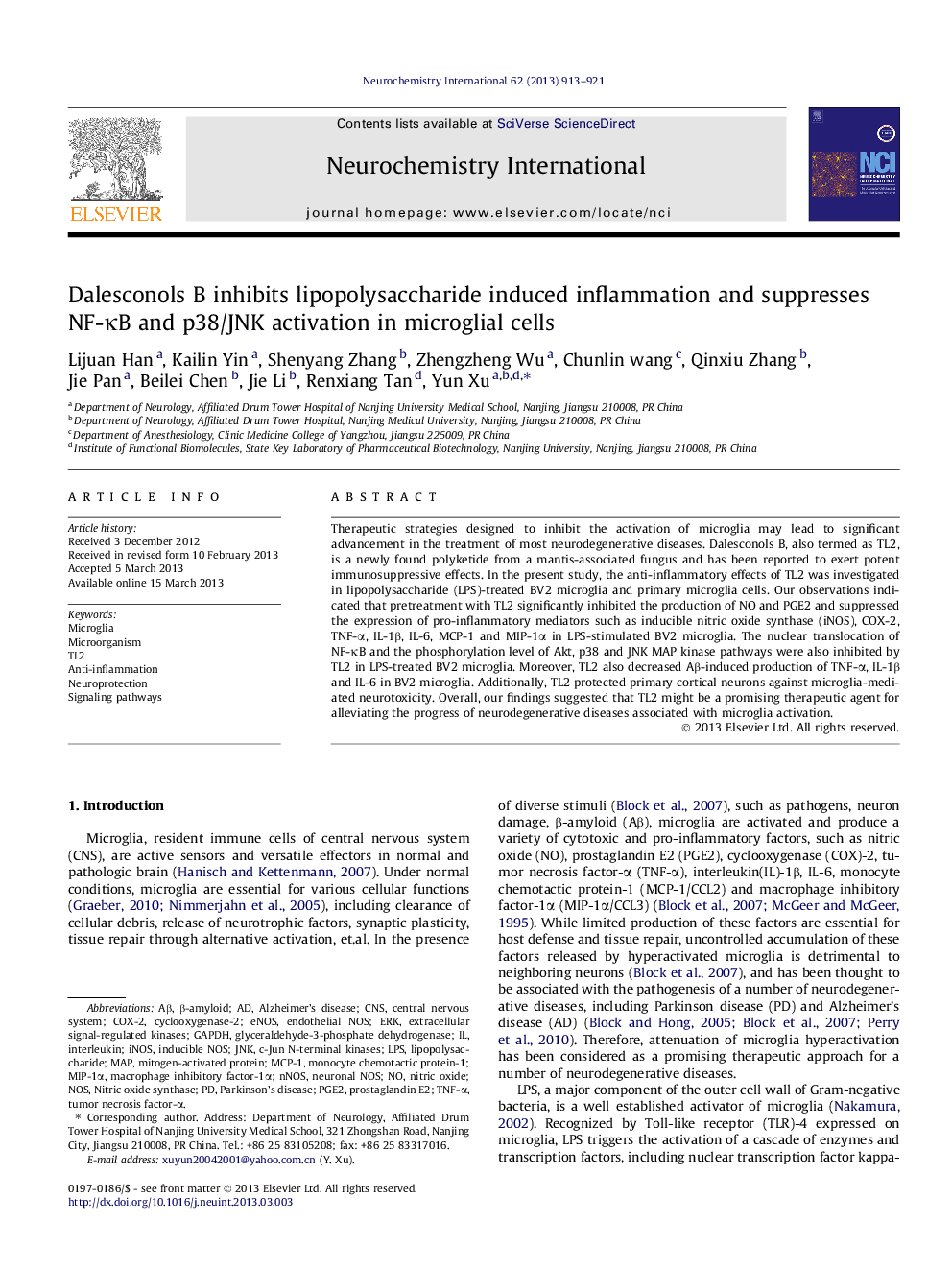| Article ID | Journal | Published Year | Pages | File Type |
|---|---|---|---|---|
| 2200700 | Neurochemistry International | 2013 | 9 Pages |
•TL2 inhibited the pro-inflammatory mediators in LPS-induced BV2 microglia.•TL2 suppressed the activation of NF-κB, Akt, p38 and JNK.•TL2 attenuated Aβ-stimulated pro-inflammatory cytokines in BV2 microglia.•TL2 prevented primary cortical neurons against microglia-mediated neurotoxicity.
Therapeutic strategies designed to inhibit the activation of microglia may lead to significant advancement in the treatment of most neurodegenerative diseases. Dalesconols B, also termed as TL2, is a newly found polyketide from a mantis-associated fungus and has been reported to exert potent immunosuppressive effects. In the present study, the anti-inflammatory effects of TL2 was investigated in lipopolysaccharide (LPS)-treated BV2 microglia and primary microglia cells. Our observations indicated that pretreatment with TL2 significantly inhibited the production of NO and PGE2 and suppressed the expression of pro-inflammatory mediators such as inducible nitric oxide synthase (iNOS), COX-2, TNF-α, IL-1β, IL-6, MCP-1 and MIP-1α in LPS-stimulated BV2 microglia. The nuclear translocation of NF-κB and the phosphorylation level of Akt, p38 and JNK MAP kinase pathways were also inhibited by TL2 in LPS-treated BV2 microglia. Moreover, TL2 also decreased Aβ-induced production of TNF-α, IL-1β and IL-6 in BV2 microglia. Additionally, TL2 protected primary cortical neurons against microglia-mediated neurotoxicity. Overall, our findings suggested that TL2 might be a promising therapeutic agent for alleviating the progress of neurodegenerative diseases associated with microglia activation.
